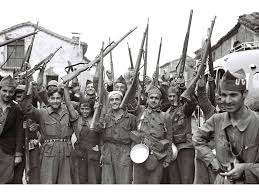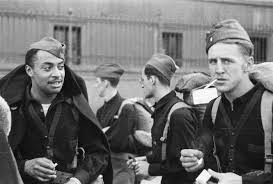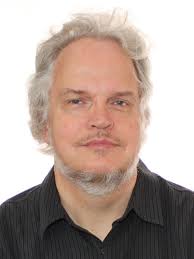#56 A Quaker in the Spanish Civil War
Live Souls: Citizens and Volunteers of Civil War Spain
by Serge Alternês and Alec Wainman
Vancouver: Ronsdale Press, 2015
$24.95 / 9781553804376
Reviewed by Larry Hannant
First published Dec. 2, 2016
*
Live Souls: Citizens and Volunteers of Civil War Spain contains the stunning documentary record of 1,650 photos taken over three years in Spain by Alec Wainman, an Okanagan-raised Oxford University student with the British Medical Unit.
Lost for forty years in a publisher’s suitcase in London, the photos have been gathered and presented by Wainman’s son, Serge Alternês. The original Canadian version has led to republication in Spanish — Ed.
*
 No special insight is needed to observe that the estimated 40,000 internationals who threw themselves into the fight to salvage democracy in Spain in 1936-9 were a mixed assemblage. Hard men whose communist flint had been sharpened by their time in Dachau fought in common cause with humanitarians for whom politics were dirt in a wound urgently needing to be cleaned and bound. Masters in the art of political intrigue mingled with some of the most creative poets, novelists, photographers and filmmakers of the era.
No special insight is needed to observe that the estimated 40,000 internationals who threw themselves into the fight to salvage democracy in Spain in 1936-9 were a mixed assemblage. Hard men whose communist flint had been sharpened by their time in Dachau fought in common cause with humanitarians for whom politics were dirt in a wound urgently needing to be cleaned and bound. Masters in the art of political intrigue mingled with some of the most creative poets, novelists, photographers and filmmakers of the era.
Along that political and artistic spectrum, Alec Wainman undoubtedly angled toward the aesthetic side. A photo of him in a Barcelona streetcar in 1937 gives us a dreamy, tender face, eyes framed by the glasses of an intellectual. Aged just twenty-three in August 1936, he volunteered for the British Medical Unit (BMU) in the first rush of international enthusiasm to aid the elected Republican government that was being attacked by fascist General Francisco Franco’s professional forces.
Wainman considered himself to be an apolitical Quaker, a pacifist informed by a Christian upbringing but not necessarily a Christian. Born in Britain, he and his family emigrated to British Columbia in 1920, and Wainman grew up on a ranch near Vernon. In 1928 his family returned to England, where he studied languages at Oxford University.
In his trek to Spain, Wainman took with him more than his youthful dedication to halting fascism and his fluency in languages. He also carried his Leitz Leica camera and a talent for seeking out the humanity in a country gripped in the vice of a modern war pitting Spaniard against Spaniard. He found and captured that compassion in a collection of 1650 photos taken over three years in Spain.
 The subject of his photos — 210 of which are reproduced in Live Souls — is less the war than Spaniards in the war. We see no combat images as such, nothing of the sensational ilk that were smeared over the front pages of newspapers at the time.
The subject of his photos — 210 of which are reproduced in Live Souls — is less the war than Spaniards in the war. We see no combat images as such, nothing of the sensational ilk that were smeared over the front pages of newspapers at the time.
What we observe — especially in those photos dating from the heady days of social upheaval in 1936 — is a remarkable portrait of working Spaniards reveling in the optimism unleashed by the new environment of the civil war. The photos affirm, among other facts, how completely the Republican army was a people’s army. The connection between civilians and militia is seamless. Soldiers are not professionals, they’re workers in uniform. Indeed their uniforms — like their weapons — are often contrived, thrown together from whatever was to hand.
 Along with images of Spaniards enthusiastically raising clenched fists and rifles, Wainman inserts subtle references to overlooked impacts of war. One is an affectionate portrait of a Spanish family at the seaside town of Tossa de Mar in March 1937. Mother, four adult daughters and their toddlers on the terrace of a home devoid of men, all of whom are at the front.
Along with images of Spaniards enthusiastically raising clenched fists and rifles, Wainman inserts subtle references to overlooked impacts of war. One is an affectionate portrait of a Spanish family at the seaside town of Tossa de Mar in March 1937. Mother, four adult daughters and their toddlers on the terrace of a home devoid of men, all of whom are at the front.
Wainman’s photographic evidence at times demands that we rethink certain romantic conceits of the civil war. Four photos from 1938, for instance, show well-heeled people — including a boy of 10 or 12 — standing before tables at the Barcelona Book Fair. The scores of books in front of them, from which they’re reading reverently, are not the works of Karl Marx. They’re studying The Bible. In Barcelona! Anarchists envisioned it to be the heartland of their toilers’ revolution. Yet in this last bastion of the republic, Barcelona — like much of Spain — held firm to a regressive conservatism. The photos are a telling challenge to the anarchist notion that a “communist bourgeoisie” handed the fascists a victory in the civil war. Franco didn’t need help from any imagined communist bourgeoisie, he had a fully-fledged Spanish bourgeoisie — plus the considerable weight of the German and Italian militaries.
 Although it is brief, Wainman’s writing from the time is also present in Live Souls. Like the photos, his diaries are insightful. For example his account of the May Days in Barcelona, May 3-8, 1937, is a frank but wry record of the clash between anarchist forces and the Republican government, a civil war within a civil war. A sympathizer of the Unified Socialist Party of Catalonia (PSUC), integrated into the Republican coalition, Wainman saw the anarchist revolt as a blow to a government already severely challenged by the fascist military assault on it. But the days of fratricidal fighting had its lighter moments. He pointed out, for instance, that each afternoon both sides observed an unofficial ceasefire so Barcelona residents could shop for dinner.
Although it is brief, Wainman’s writing from the time is also present in Live Souls. Like the photos, his diaries are insightful. For example his account of the May Days in Barcelona, May 3-8, 1937, is a frank but wry record of the clash between anarchist forces and the Republican government, a civil war within a civil war. A sympathizer of the Unified Socialist Party of Catalonia (PSUC), integrated into the Republican coalition, Wainman saw the anarchist revolt as a blow to a government already severely challenged by the fascist military assault on it. But the days of fratricidal fighting had its lighter moments. He pointed out, for instance, that each afternoon both sides observed an unofficial ceasefire so Barcelona residents could shop for dinner.
After his time in Spain, where he served for a year as press officer for the last Republican government, Wainman continued his anti-fascist work in the British military during World War Two. In 1947 he returned to British Columbia, where he had a 30-year academic career at the University of British Columbia. After a long struggle with dementia, he died in 1989.

By mischance, Wainman’s photos languished for 40 years, apparently lost after they were sent in 1975 to London for a publication project that failed. Only later did Wainman’s son, Serge Alternês, embark on a quest to learn their fate. His dedication led to the rediscovery of the photos in a forgotten suitcase of a retired publisher in London.
One disappointment is that for no announced reason, Alternês does not acknowledge himself to be Wainman’s son. So Live Souls contains none of what a reader would suspect to be a fascinating story of a family in which the memory of a seminal moment in a man’s life slowly fades, then is recovered in a physical form.
In addition to the English edition, Ronsdale Press has also published Live Souls in Spanish. It’s an ambitious undertaking for the Vancouver publisher, which has produced a stunning collection of photos on glossy paper in a format that presents the memorable photos at their best.
*

Larry Hannant is a history professor and an award-winning book author and website creator. He is an adjunct associate professor in the Department of History at the University of Victoria. He is the author of The Infernal Machine: Investigating the Loyalty of Canada’s Citizens (1995) and the editor of The Politics of Passion: Norman Bethune’s Writing and Art (1998), which won the Robert S. Kenny Prize in Left/Labour Studies in 1999, and Champagne and Meatballs: Adventures of a Canadian Communist (2011). Hannant researched and co-wrote a feature-length documentary film on the Doukhobors, The Spirit Wrestlers, which was broadcast on History Television in 2002. He is the director of “Explosion on the Kettle Valley Line: The Death of Peter Verigin” and “Death of a Diplomat: Herbert Norman and the Cold War,” two sections of the award-winning Great Unsolved Mysteries in Canadian History website. In addition to non-fiction books, he has published magazine and newspaper articles, as well as poetry and short stories.
*
The Ormsby Review. More Books. More Reviews. More Often.
Publisher and Editor: Richard Mackie
The Ormsby Review is a journal service for in-depth coverage of B.C. books and authors. The Advisory Board consists of Jean Barman, Wade Davis, Robin Fisher, Cole Harris, Hugh Johnston, Patricia Roy, David Stouck, Maria Tippett, and Graeme Wynn. Scholarly Patron: SFU Graduate Liberal Studies. Honorary Patron: Yosef Wosk. Provincial Government Patron since September 2018: Creative BC
“Only connect.” – E.M. Forster
2 comments on “#56 A Quaker in the Spanish Civil War”
Comments are closed.